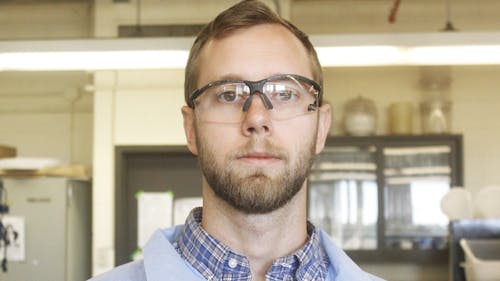Rutgers graduates make best of research opportunities

“Why do girls feel they are not good at math?” “Why do they feel self conscious about their weight?” “Why do some people not vote?” These were some questions that perplexed Tsai-Yen Han.
These questions led Han, now a graduate student in sociology and a teaching assistant, into research and ultimately into graduate school. Although she has always been interested in human interactions and social regularity as an undergraduate, she felt as if she learned primarily from books and teachers.
After she became a graduate student, however, she had the opportunity to research about how social structures shape an individual’s life, opportunities and feelings.
“As a graduate student, I not only learn, but contribute to the existing knowledge,” Han said. “I conduct research and my findings help all human beings learn more about one specific issue.”
An advantage of research is being able to challenge the theories one learns in books and classrooms, she said.
Han also discovered that research was not only restricted to those in science, technology, engineering and mathematics fields.
Dane Jensen was an aspiring chef who realized the chef lifestyle wasn’t for him. But with his love of food still lingering, he decided to pursue a Ph.D. in food science.
Jensen, now a graduate student conducting research in food safety, encouraged undergraduates to pursue researching topics within their field that fascinate them.
His current research area involves studying surfactants, antimicrobials, hand soaps and hand sanitizers. Prior to this, he was working on cross contamination between fresh produce, kitchen surfaces and hands.
“Grad school has allowed me to learn more about an area that I’m really interested in, and I also felt that it opened up more employment options for me,” Jensen said
When designing and conducting research projects, students are trained to think critically — working to solve problems and interpret results.
There are a variety of ways students can find research opportunities, such as emailing professors or teaching assistants inquiring if there are any research openings or browsing online in the University’s department websites.
Students must start research early on as undergraduates to avoid the hardships associated with research as graduate student.
Veronica Cavera, a graduate student and teaching assistant studying education, is involved in a number of projects dealing with anaerobic bacteria — an organism that does not need oxygen to survive — and how they grow in a biofilm.
Cavera has also encountered her own share of difficulties with research in graduate school, mainly maintaining her social life, school life and family life balance.
“It is tough,” she said. “You’re doing a lot of things. My first year here, I missed Thanksgiving and I missed Father’s Day because I was working. That hurts me quite a bit, and it hurts my family that I chose my work and career over them.”
Cavera said being a woman in science adds to the uphill battle, but walking into a room full of Ph.D.’s who happen to be all men is empowering.
Cavera initially came to graduate school for microbiology, but uncovered her passion for teaching, which has led her to pursuing a degree in education. She has taught courses in genetics, food science, foundations for biological sciences and general biology.
Undergraduates should get into research because of the opportunity to work with people in totally different fields.
She once worked on a project with a chemist, a biochemist and people in pharmacy.
“I know people who say, ‘I’m so smart — I’m going to get a Ph.D.’ Yes, you are very smart, but you’re smart at one thing,” she said. “You need help from 15 other people to get the big picture.”
Cavera said testing out research would be smart to figure out whether or not graduate school is the right decision.
“Its very damaging when you work and work, then realize that you don’t like this — but you’re stuck,” she said. “Make sure you know what you want to do and that you’re doing it for the right reasons.”



